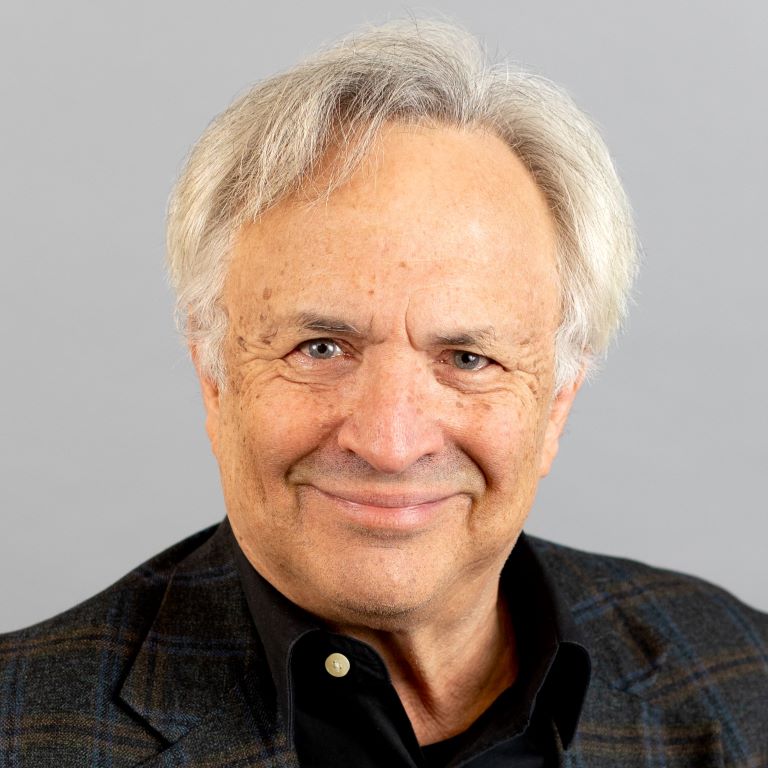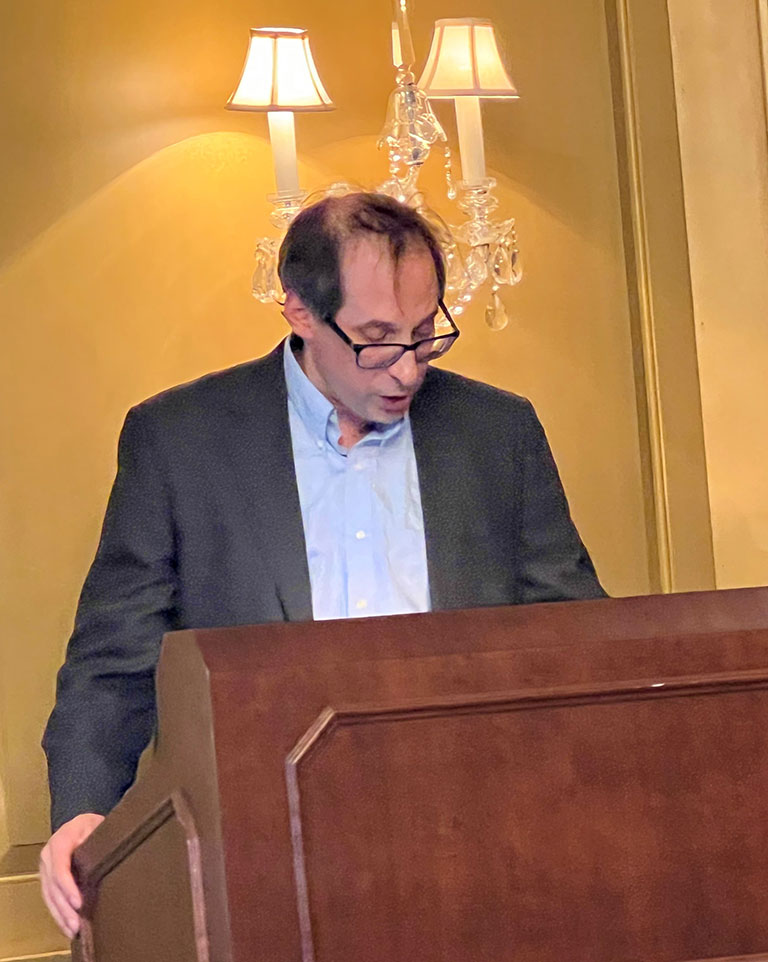Finally, Professor José Pedro Serra, visiting from the University of Lisbon, spoke at our annual spring party, which took place in the University Club. His presentation, which included penetrating comments on tragedy written over thousands of years, was entitled “Shadows and Dreams: Tragedy and Language in Fernando Pessoa’s The Mariner.” It was fascinating to hear how all of this contemplative thinking on tragedy tied into the writing of the renowned Portuguese writer.
It is true that two of our distinguished speakers mentioned shadows. But they brought us back into the light of intellectual life, as experienced by human beings sitting together in a live setting (not on Zoom, thankfully) with their fine lectures.
What a variety of provocative topics! These presentations ranged from South America, out to Indonesia, and finally to Pessoa, one the greatest modern writers of Portugal, exploring how his voice related to the ancient Greco-Roman concepts of tragedy.
But now let’s take a look at what some of our graduate students are doing. I’d like to acknowledge the recipients of our recently developed departmental fellowships and the generosity of the donors that has made it all happen. Our first recipient of the Newman Family Fellowship is Meaghan Murphy, who is researching ancient Roman conspiracy theory in relation to contemporary American conspiracy theory. She is investigating how narratives from these different periods “maintain similar reference points and construction across time.” Our first Fogg Highsmith Award recipient, Yilin La, who has to come from China to do her doctoral work with us, is researching the poetics of prayer in George Herbert and Emily Dickinson, and her intrigue with the comparative poetics of Islamic and Christian traditions continues. Alan Reisner has been awarded the Stallknecht Fellowship for his dissertation research. He is developing a theory of myth based on Gödel’s incompleteness theorem. He will be in Paris next year as part of our Nanterre exchange program for graduate students. He plans to consult with Luc Brisson, a highly respected French scholar who happens to be an emeritus director of the CNRS, a distinguished French research institute, and also an alumnus of Nanterre. Brisson has also written on the connections between Gödel and myth theory, but Alan plans to also branch out into new applications based on his unique knowledge of Japanese literature and culture.
This is a stunning array of varied intellectual projects pertaining to comparative literature. I can’t wait to hear more about their work.
I have been thinking a lot about the breadth and flexibility of Comparative Literature, enabling us all to study literature without the usual confines of disciplinary walls and linguistic strictures. All of the awards and lectures I’ve described above have helped me appreciate our field all the more.
What other discipline could offer such breadth?
The comparative literature community, so diverse and so full of intellectual riches, really ought to stay in touch. I hope all colleagues, current and emeriti, and all alumni, far and wide, will send news.
We would love to hear from you.
David M. Hertz
Chair and Professor, Comparative Literature


 The College of Arts
The College of Arts